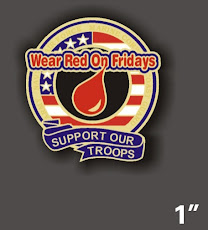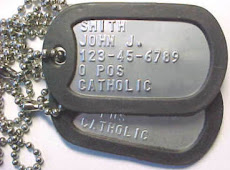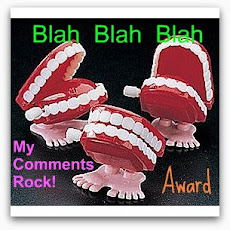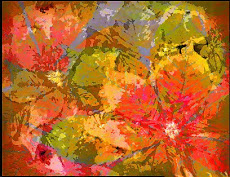Last and by no
means least was Admiral McDonald, a Georgia minister's son, also a Naval
Academy graduate, and a naval aviator.
While Admiral
McDonald was a most capable leader, he was also a reluctant warrior. He did not like what he saw emerging as a
national commitment. He did not really
want the US to get involved with land warfare, believing as he did that the
Navy could apply sea power against North Vietnam very effectively by mining, blockading, and assisting in a bombing campaign, and in this way help
to bring the war to a swift and satisfactory conclusion.
The Joint Chiefs intended that the prime topics of the meeting with the
President would be naval matters - the mining and blockading of the port of
Haiphong and naval support of a bombing campaign aimed at Hanoi. For that reason, the Navy was to furnish a
briefing map, and that became my responsibility. We mounted a suitable map on a large piece of plywood,
then coated it with clear acetate so that the chiefs could mark on it with
grease pencils during the discussion. The whole thing weighed about 30 pounds.
The Military Office at the White House agreed to set up an easel in the Oval
Office to hold the map. I would
accompany Admiral McDonald to the White House with the map, put the map in
place when the meeting started, then get out. There would
be no strap-hangers at the military summit meeting with Lyndon Johnson. The map and I joined Admiral McDonald in his staff car for the short
drive to the White House, a drive that was memorable only because of the silence.
My admiral was totally preoccupied.
The chiefs' appointment with the President was for two o'clock, and Admiral McDonald and I arrived
about 20 minutes early. The chiefs were
ushered into a fairly large room across the hall from the Oval Office. I propped the map board on the arms of a fancy
chair where all could view it, left two of the grease pencils in the tray
attached to the bottom of the board, and stepped out into the corridor. One of the chiefs shut the door, and they
conferred in private until someone on the White House staff interrupted them
about fifteen minutes later. As they
came out, I retrieved the map, and then joined them in the corridor outside the
President's office.
Precisely at two o'clock President Johnson emerged from the
Oval Office and greeted the chiefs. He
was all charm. He was also big: at three
or more inches over six feet tall and something on the order of 250 pounds, he
was bigger than any of the chiefs. He
personally ushered them into his office, all the while delivering gracious and
solicitous comments with a Texas accent far more pronounced than the one that
came through when he spoke on television. Holding the map board as the chiefs entered, I
peered between them, trying to find the easel. There was none. The President looked at me, grasped the situation
at once, and invited me in, adding, "You can stand right over here." I had become an easel-one with eyes and ears.
To the right of the door, not far inside the office, large windows framed
evergreen bushes growing in a nearby garden.
The President's desk and several chairs were farther in, diagonally
across the room from the windows. The President
positioned me near the windows, then arranged the chiefs in a semicircle in
front of the map and its human easel. He
did not offer them seats: they stood, with those who were to speak-Wheeler,
McDonald, and McConnell-standing nearest the President. Paradoxically, the two whose services were most
affected by a continuation of the ground buildup in Vietnam - Generals Johnson
and Greene - stood farthest from the President. President Johnson stood nearest the door,
about five feet from the map.
In retrospect, the setup-the failure to have an easel in place, the positioning of the chiefs on the outer fringe of the office, the lack of seating-did not augur well. The chiefs had expected the meeting to be a short one, and it met that expectation. They also expected it to be of momentous import, and it met that expectation, too. Unfortunately, it also proved to be a meeting that was critical to the proper pursuit of what was to become the longest, most divisive, and least conclusive war in our nation's history-a war that almost tore the nation apart.
As General Wheeler started talking, President Johnson peered at the map. In five minutes or so, the general summarized
our entry into Vietnam, the current status of forces, and the purpose of the meeting. Then he thanked the President
for having given his senior military advisers the opportunity to present their
opinions and recommendations. Finally,
he noted that although Secretary McNamara did not subscribe to their views, he
did agree that a presidential-level decision was required. President Johnson, arms crossed, seemed to be
listening carefully.
The essence of General Wheeler's presentation was that we had come to an early
moment of truth in our ever-increasing Vietnam involvement. We had to start using our principal strengths -
air and naval power - t punish the North Vietnamese, or we would risk becoming
involved in another protracted Asian ground war with no prospects of a
satisfactory solution. Speaking for the
chiefs, General Wheeler offered a bold course of action that would avoid
protracted land warfare. He proposed
that we isolate the major port of Haiphong through naval mining, blockade the
rest of the North Vietnamese coastline, and simultaneously start bombing Hanoi
with B-52's.
General Wheeler then asked Admiral McDonald to describe how the Navy and Air
Force would combine forces to mine the waters off Haiphong and establish a
naval blockade. When Admiral McDonald
finished, General McConnell added that speed of execution would be essential,
and that we would have to make the North Vietnamese believe that we would
increase the level of punishment if they did not sue for peace.
Normally, time dims
our memories-but it hasn't dimmed this one. My memory of Lyndon Johnson on that day
remains crystal clear. While General
Wheeler, Admiral McDonald, and General McConnell spoke, he seemed to be
listening closely, communicating only with an occasional nod. When General McConnell finished, General
Wheeler asked the President if he had any questions. Johnson waited a moment or so, then turned to Generals Johnson and Greene, who had remained silent during the briefing, and
asked, "Do you fully support these ideas?"
He followed with the thought that it was they who were providing the ground
troops, in effect acknowledging that the Army and the Marines were the services
that had most to gain or lose as a result of this discussion. Both generals indicated their agreement with
the proposal. Seemingly deep in thought,
President Johnson turned his back on them for a minute or so, then suddenly
discarding the calm, patient demeanor he had maintained throughout the meeting,
whirled to face them and exploded.
I almost dropped the map. He screamed
obscenities, he cursed them personally, he ridiculed them for coming to his
office with their "military advice." Noting that it was he who was carrying the
weight of the free world on his shoulders, he called them filthy names-shitheads, dumb
shits, pompous assholes-and used "the F-word" as an adjective more freely
than a Marine in boot camp would use it.
He then accused them of trying to pass the buck for World War III to
him. It was unnerving, degrading.
After the tantrum, he resumed the calm, relaxed manner he had displayed earlier
and again folded his arms. It was as though he had punished them, cowed them,
and would now control them. Using soft-spoken profanities, he said something to the effect that they all knew now
that he did not care about their military advice. After disparaging their abilities, he added
that he did expect their help.
He suggested that each one of them change places with him and assume that five
incompetents had just made these "military recommendations." He told them that he was going to let them go
through what he had to go through when idiots gave him stupid advice, adding that he had the
whole damn world to worry about, and it was time to "see what kind of guts
you have." He paused, as if to let
it sink in. The silence was like a palpable
solid, the tension like that in a drumhead. After thirty or forty seconds of this, he
turned to General Wheeler and demanded that Wheeler say what he would do if he
were the President of the United States.
General Wheeler took a deep breath before answering. He was not an easy man to shake: his calm
response set the tone for the others. He
had known coming in, as had the others that Lyndon Johnson was an exceptionally
strong personality and a venal and vindictive man as well. He had known that the stakes were high, and
now realized that McNamara had prepared Johnson carefully for this meeting,
which had been a charade.
Looking President Johnson squarely in the eye, General Wheeler told him that he
understood the tremendous pressure and sense of responsibility Johnson felt. He
added that probably no other President in history had had to make a decision of this importance, and further
cushioned his remarks by saying that no matter how much about the presidency he
did understand, there were many things about it that only one human being could
ever understand. General Wheeler closed
his remarks by saying something very close to this: "You, Mr. President,
are that one human being. I cannot take
your place, think your thoughts, know all you know, and tell you what I would
do if I were you. I can't do it, Mr.
President. No man can honestly do it. Respectfully, sir, it is your decision and
yours alone."
Apparently unmoved, Johnson asked each of the other Chiefs the same question. One at a time, they supported General Wheeler
and his rationale. By now, my arms felt
as though they were about to break. The map
seemed to weigh a ton, but the end appeared to be near. General Greene was the last to speak.
When General Greene finished, President Johnson, who was nothing if not a
skilled actor, looked sad for a moment, then suddenly erupted again, yelling
and cursing, again using language that even a Marine seldom hears. He told them he was disgusted with their naive
approach, and that he was not going to let some military idiots talk him into
World War III. He ended the conference
by shouting "Get the hell out of my office!"
The Joint Chiefs of
Staff had done their duty. They knew
that the nation was making a strategic military error, and despite the rebuffs
of their civilian masters in the Pentagon, they had insisted on presenting the
problem as they saw it to the highest authority and recommending solutions. They had done so, and they had been rebuffed.
That authority had not only rejected their solutions, but had also insulted and
demeaned them.
As Admiral McDonald and I drove back to the Pentagon, he turned to me and said
that he had known tough days in his life, and sad ones as well, but ". . .
this has got to have been the worst experience I could ever imagine."
The US involvement in Vietnam lasted another ten years. The irony is that it began to end only when President Richard Nixon, after some backstage maneuvering on the international
scene, did precisely what the Joint Chiefs of Staff had recommended to President Johnson in 1965.
Why had Johnson not only dismissed their recommendations, but also ridiculed
them? It must have been that Johnson had lacked something. Maybe it was foresight or boldness. Maybe it was the sophistication and
understanding it took to deal with complex international issues. Or, since he was clearly a bully, maybe what
he lacked was courage. We will never
know.
But had General Wheeler and the others received a fair hearing, and had their
recommendations received serious study, the United States may well have saved
the lives of most of its more than 58,000 sons who died in a war that its major architect, Robert Strange McNamara, now
considers to have been a tragic mistake.
Peeps, I have held
the belief that if you are going to send American boys and girls into harm’s
way for whatever greedy, religious, strategic reason for doing so, let the
military brass do what they have trained all their lives to do. There will be less casualties, more damage
and shorter combats and wars. Pass a law
that politicians should stay the fuck out of the decision making and NEVER
offer advice for rules of engagement (ROE’s).
WWII lasted four
years and could have been won in less time, but we were divided on both coast
in different wars. Had we fought either
of them individually, the wars would have been over in much less time. The main reason we won in four years, though,
is because we, and our allies, bombed the shit out the day and night. No concern for collateral damage. Nothing but destruction of everything; war
production factories and facilities, homes and families, everything that broke
moral and strength. We need to do the
same thing today and stop losing American lives.
IMHO!

















































